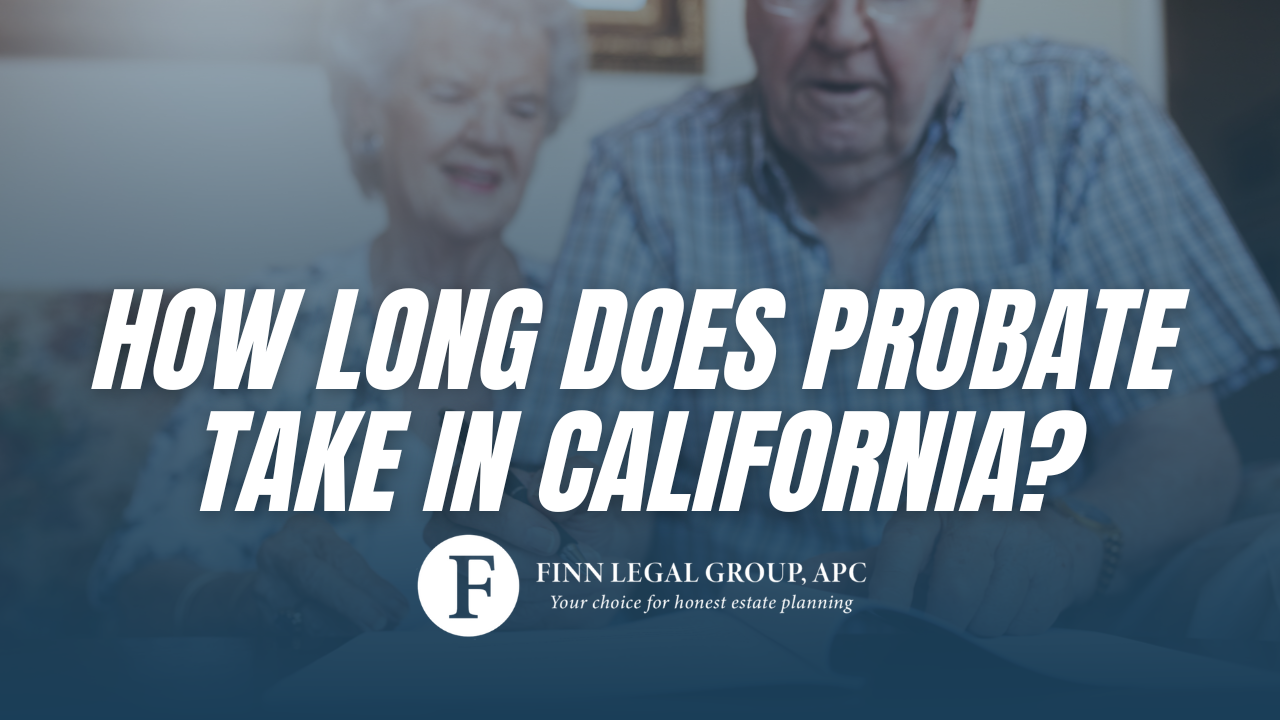Does Marriage Override a Trust in California: Navigating Estate Laws for Spouses
Setting up a trust in California is a robust way to manage assets, but does marriage override a trust in California? No, it does not override a trust outright, but there are nuances to consider. This article walks you through the dynamics of how marriage interacts with trusts in California, preparing you to protect your estate plan when marriage enters the equation.
Key Takeaways
- In California, the nature of a trust as either separate or community property affects its management and distribution, with marriage significantly influencing estate planning and asset control.
- Trust documents remain largely unchanged after marriage, with irrevocable trusts providing steadfast terms and revocable trusts offering flexibility. Pre-marital trusts are generally viewed as separate property but can be modified post-marriage with mutual consent.
- Trusts can provide financial protection in divorce proceedings, with prenuptial or post-nuptial agreements further safeguarding trusts by designating certain assets and income as separate property.
Interplay Between Marriage and Trusts in California
In the realm of estate planning, marriage doesn’t merely denote a union of two souls; it signifies a significant shift in the legal landscape. Trusts established before or during marriage can be categorized as marital community property or separate property, an important distinction that has profound implications on the control and distribution of trust assets.
In the Golden State, spouses have the authority to name each other as beneficiaries, serve as co-trustees, and maintain control over trust assets. These interactions are shaped by the trust’s categorization as marital or separate property. Marital laws in California, therefore, can have a considerable impact on the formation and management of trusts, particularly in relation to tax advantages and asset administration.
Trust Integrity Post-Marriage: What Remains Unchanged?
Despite the transformative power of marriage, certain aspects of trusts remain unaltered, preserving their integrity post-nuptials. The terms of an irrevocable trust, for instance, remain steadfast, impervious to modification even in the face of a spouse’s demise.
Revocable trusts, on the other hand, offer more flexibility, allowing alterations during the grantor’s lifetime. However, a marriage itself does not automatically impact the terms of such trusts, though it may influence income tax implications and federal estate tax considerations.
We will now examine these two categories of trusts in detail, focusing on their impact on spouses and rights prior to marriage.
Irrevocable vs. Revocable Trusts
Irrevocable and revocable trusts, the two pillars of estate planning, differ significantly in their structure and implications. Irrevocable trusts, as the name suggests, are unchangeable once established. They transfer asset ownership from the trust maker to the trust, offering protection against creditors and potentially reducing the surviving spouse’s estate tax liability.
Revocable trusts, in contrast, offer flexibility and adaptability. They allow the grantor to alter or annul the trust during their lifetime, provided they possess the legal capacity to do so. Assets in a revocable trust, if established before marriage, are considered separate property. The benefactor retains ownership and control of the assets, allowing direct management.
Specific Provisions for Spouses in Trust Documents
Trust documents frequently incorporate tailored provisions for spouses, providing for their financial and property rights in a community property state. These provisions can determine the treatment of assets, including community property assets, separate property, or quasi community property.
Such provisions can safeguard the rights of a spouse, establishing marital trusts to oversee and manage assets for the surviving spouse’s welfare. They also provide clarity and control over asset distribution, eliminating confusion about asset ownership, and enabling strategic asset transfers after a spouse’s demise.
Pre-Marital Trusts and the New Spouse’s Rights
Pre-marital trusts, established prior to a marriage, are typically considered separate property, shielded from division between spouses in the event of divorce. However, the rights of a new spouse to a pre-marital trust can be a complex issue, contingent on whether the trust’s assets are classified as community or separate property.
Maintaining the separate nature of a pre-marital trust can be crucial to protect it from potential marital disputes. However, a pre-marital trust in California can be modified after marriage, given that both spouses consent to the modification.
Marital Property vs. Trust Assets: Defining Boundaries
Grasping the distinction between marital property and trust assets is vital in mastering the legal intricacies of marriage and trusts. Trust assets are seen as the exclusive property of the beneficiary spouse, safe from equitable distribution, unlike marital assets which are subject to division in the event of a divorce.
Trusts and marriage:
- Trusts established prior to marriage are classified as separate property
- Trusts created during the marriage are considered marital property
- A trust, particularly an irrevocable one created before marriage, can safeguard assets from becoming part of the marital estate, simplifying the process of asset distribution.
When Marriage May Challenge a Trust’s Terms
Although trusts offer a strong structure for asset management and distribution, circumstances may arise where their terms are put to the test by marriage. In California, those with a vested interest, including spouses, heirs, and creditors, can challenge the provisions of a living trust.
When conflicts between trust terms and marital rights arise, the California legal system steps in, guided by various statutes, such as the Probate Code and Family Code, to resolve these conflicts. If trust beneficiaries feel their rights are being contested by a marriage, they can pursue legal action, initiating a lawsuit against the trustee or contesting the equity or impartiality of the will or trust.
Protecting Your Trust from Marital Disputes
Parallel to the protective vow of marriage, trusts can be configured to shield assets from potential marital conflicts. Marital trusts can oversee and safeguard assets, preserving separate property and preventing the mingling of assets with marital ones.
Prenuptial or post-nuptial agreements can further protect a trust in the event of marital disputes, designating income, assets, and debts as separate property. Depending on the trust’s structure, it may offer protection from creditors and divorce proceedings, with the trustee holding the power to exclude beneficiaries engaged in divorce proceedings to protect the assets.
The Role of Trusts in Divorce Proceedings
The introduction of trusts adds another layer of complexity to the already intricate legal process of divorce. Trusts established before the marriage are typically classified as separate property, while trusts created during the marriage are likely to be deemed marital property, subject to equal division.
The court assesses marital property trusts by classifying each trust as either marital or separate property, with the treatment varying depending on the type of trust and divorce laws applied. The evaluation of trusts during divorce proceedings can present challenges due to the distinctive characteristics of trust assets and their management during the marriage.
Estate Planning Considerations for Married Couples
With the commencement of the marital journey comes an array of factors to consider for estate planning. Establishing a joint trust can simplify the process of asset funding and maintenance during a couple’s lifetime, although its suitability depends on the couple’s specific circumstances and estate plan objectives.
Updating trust documents after marriage is also crucial to document the couple’s intentions, including whether they plan to include their spouse as a beneficiary. This ensures that the trust accurately reflects their current wishes, providing for their spouse accordingly, if that is their intent.
Establishing Joint Trusts
The creation of a joint trust presents a multitude of benefits for wedded couples. A joint trust encompasses both spouses, providing a single trust document that includes provisions for the distribution of assets upon the death of each.
However, joint trusts may not be optimal for all situations. Separate trusts can offer enhanced asset protection for individuals seeking precise control over asset distribution after their passing. Therefore, considerations such as the couple’s asset protection requirements and intentions for asset distribution should guide the decision to establish a joint trust.
Updating Trust Documents After Marriage
The act of getting married necessitates not only a change in your relationship status but a revision of your trust documents as well. In California, updating a trust document after marriage requires the unanimous written consent of the settlor and all beneficiaries of the trust, highlighting the importance of legal guidance and adherence to specific trust provisions and state laws.
Not updating trust documents after marriage can lead to uncertainties regarding property distribution upon your death, and your spouse may have to go through a costly and time-consuming legal procedure to be designated as your guardian or conservator. Updating trust documents after marriage ensures that you can designate a third party to manage specific assets for the benefit of your beneficiaries.
Inheritance Rights and Trusts: The Surviving Spouse’s Position
Comprehending the inheritance rights of a surviving spouse with respect to trusts is indispensable for effective estate planning. Prenuptial and postnuptial agreements can restrict the inheritance rights of a surviving spouse, altering their position in relation to trusts.
In the absence of such agreements, if a spouse dies and the surviving spouse is married with no adopted or biological children, they will inherit all community property and one-half of the deceased spouse’s separate property, with the remaining half of the separate property allocated to the parents or siblings of the deceased spouse. This process ensures the fair distribution of the surviving spouse’s estate.
Navigating Blended Family Dynamics with Trusts
Blended families, marked by an assortment of step-parents, step-siblings, and half-siblings, pose distinct hurdles in the arena of estate planning. Trusts can ensure a fair distribution of inheritance for all children, including those from different marriages, minimizing the need for probate court involvement and potential disputes.
QTIP trusts and bypass trust provisions can facilitate the protection and rightful inheritance of the surviving spouse and children from a previous marriage, ensuring everyone in the blended family is adequately provided for.
Contact Finn Legal Group Today
Navigating the intertwined paths of marriage and trusts in California can be daunting, but with careful planning and understanding, it’s possible to find your way. Whether it’s deciding between a joint or separate trust, understanding the implications of prenuptial and postnuptial agreements, or ensuring equitable inheritance in a blended family, trusts offer a versatile tool for managing and protecting assets within a marriage. Remember, every marriage, like every trust, is unique, and what works best for one may not work for another.





